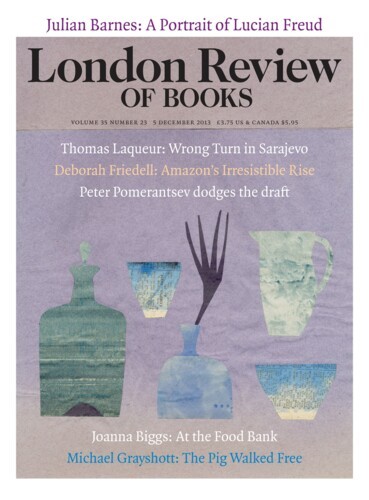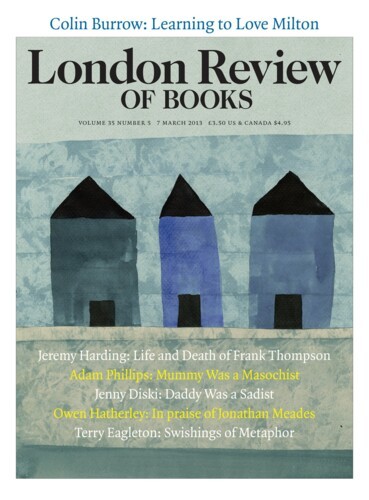Michael Grayshott
Michael Grayshott, a public and human rights lawyer, is currently writing a short history of offence and the criminal law.
The Pig Walked Free: Animal Trials
Michael Grayshott, 5 December 2013
Crucifixions, burnings, boilings: the walls, windows and alcoves of churches and cathedrals are adorned with all manner of sticky ends. The Church of the Holy Trinity in Falaise, Normandy once contained a unique example: a fresco on its western wall, dating from the late 14th century, depicted the death by hanging of a pig. The swine was no martyr, but a murderer. According to a contemporary...
Short Cuts: Topping up the Hereditaries
Michael Grayshott, 7 March 2013
With 760 members, the House of Lords is the second largest legislature in the world behind the National People’s Congress of China. If you ignore lower chambers and compare it only to other upper chambers, it is the largest by far: France’s Senate, its closest rival, has 348 members, Italy’s has 315 and Egypt’s 264. And the government is due to appoint a new batch of...
The Post Office rolled out the K6 telephone kiosk in 1935, to celebrate George V’s silver jubilee. One unintended consequence, as the postmaster general, Kingsley Wood, explained to Parliament, was ‘an increasing number of cases where miserable people have indulged in the use of improper or obscene language to our female telephonists’. A switchboard operator might valiantly try to ensure the caller ‘held the line’ long enough for an engineer to trace his location, but the heavy-breathers had unwittingly found a loophole in the law. The GPO tried to bodge a solution from some statutory off-cuts, either arguing that this behaviour constituted ‘fraudulent use of electricity’ or invoking the even more obscure common law offence of ‘obstruction’, but these were cumbersome and ineffective remedies.
Read anywhere with the London Review of Books app, available now from the App Store for Apple devices, Google Play for Android devices and Amazon for your Kindle Fire.
Sign up to our newsletter
For highlights from the latest issue, our archive and the blog, as well as news, events and exclusive promotions.



